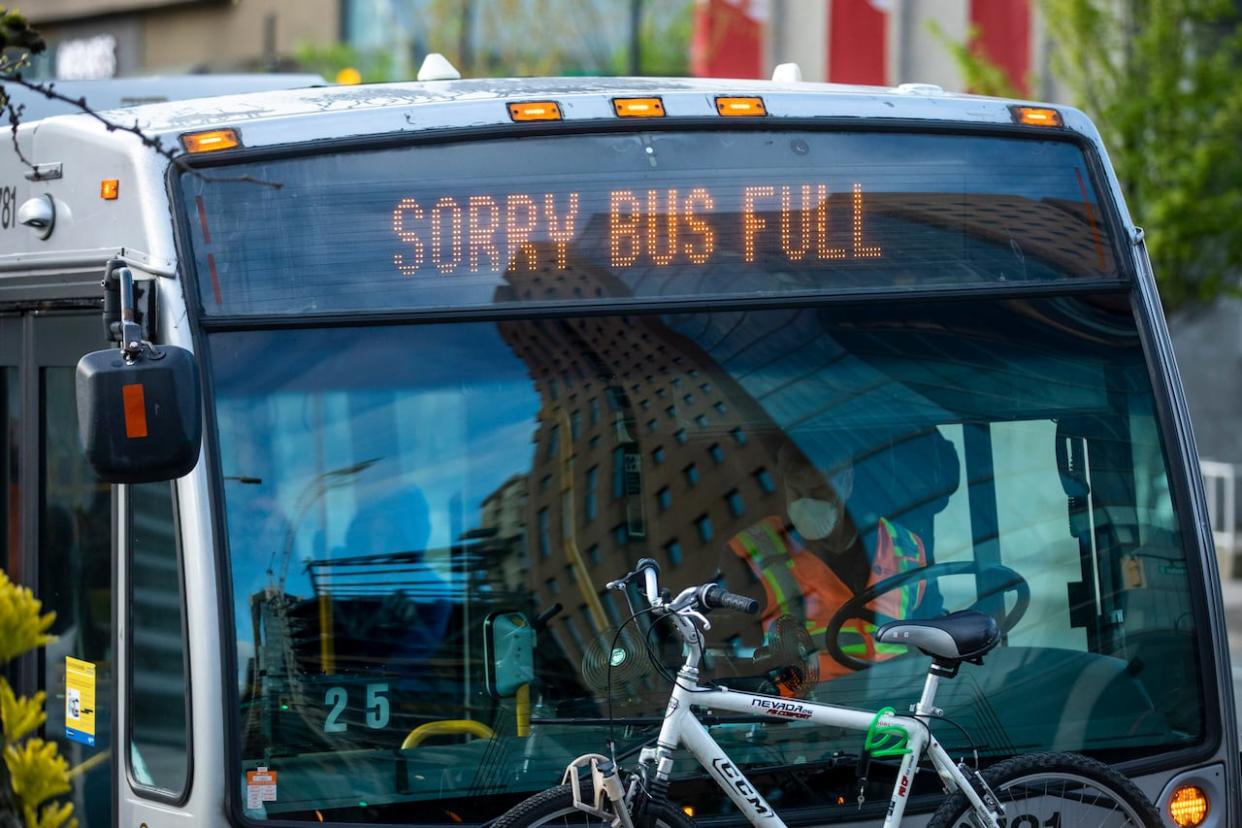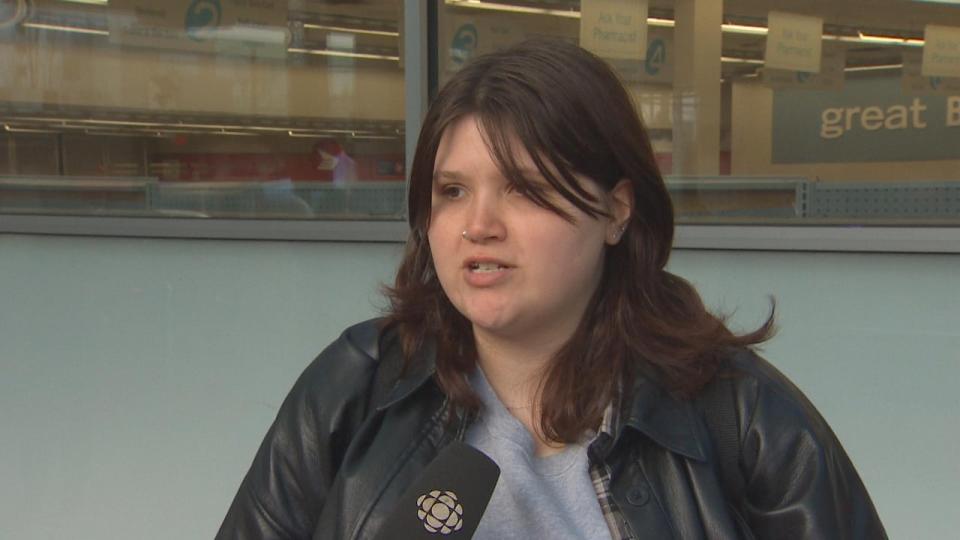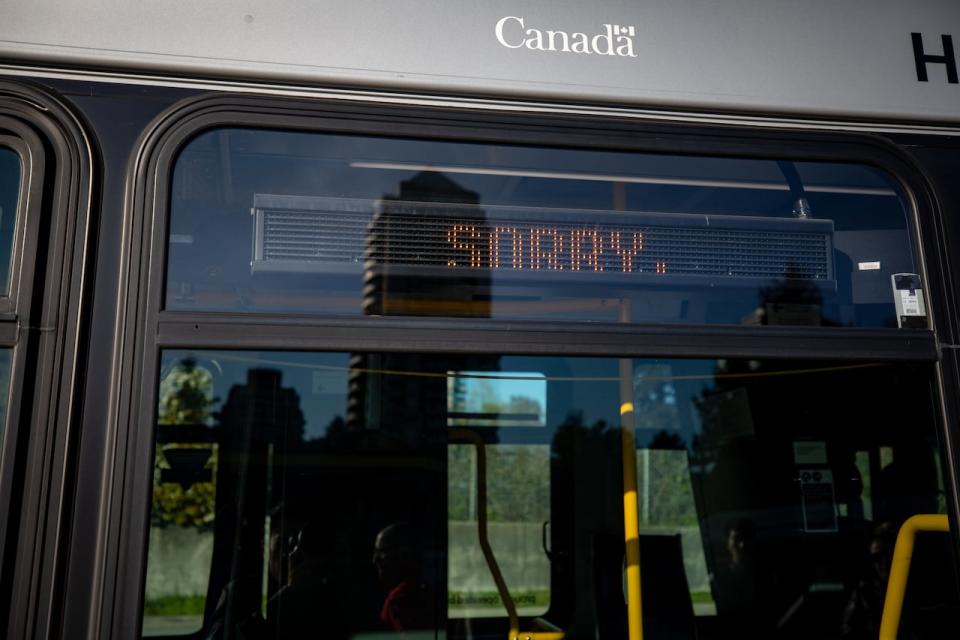Commuters brace for impact of transit workers' strike in Metro Vancouver

Chloe Fike says she takes the 99 B-line to her classes at the University of British Columbia multiple times a week, and has seen buses so packed "you can't get a seat and doors can barely close."
The 22-year-old usually plans her commute to avoid peak times, but worries the ongoing job action by some Metro Vancouver transit workers may throw a wrench in her plans as the new semester begins Monday.
"UBC is pretty far away from everything, so yeah, it's pretty concerning," she told CBC News outside Commercial-Broadway station on Sunday.
CUPE Local 4500 — which represents more than 180 workers in the transit system including transit supervisors, engineers and a range of maintenance workers — is warning of likely delays, cancellations and even more crowded buses on Monday as students like Fike return to classes and commuters head to work on the first week day since the job action began.

Chloe Fike says she usually plans her commute to the University of British Columbia to avoid peak times on the 99 B-Line, but she's worried about the impact of the ongoing transit job action on her commute when classes resume on Monday. (CBC News)
The employees of Coast Mountain Bus Company (CMBC) who are members of the union — who oversee everything from engineering to maintenance, and field services to communications — began refusing overtime at 8 a.m. PT on Saturday.
"We're going to start seeing these impacts rolling in ... right across the system," said Liam O'Neill, a CUPE national representative, in an interview with CBC News on Sunday. "There is a lot of overtime that's worked by our members."
CMBC is a subsidiary of TransLink, the Metro Vancouver region's transit authority.
In interviews with CBC News on Sunday, several transit riders in Surrey and East Vancouver expressed concern about the impacts of the strike on their commutes come Monday.
O'Neill said commuters should leave early and expect delays.
"If I was travelling tomorrow, I would make sure I give myself a little bit extra time to make sure that you get where you need to go," said O'Neill.
The union says the job action, which followed a 72-hour strike notice on Wednesday, comes as a last resort as talks with CMBC broke down. The last collective agreement expired in October 2022.
O'Neill says some of the issues that led to the job action were fair wages compared to other transit companies and excessive workloads, particularly for supervisors working in communications and field services.
"CMBC has been talking for a long time about expanding service exponentially. However, staffing [levels] haven't increased since 2012," he said. "So if they can't get the staffing levels where they need to be today, we can only imagine in the future how bad it's going to be."
O'Neill previously told CBC News some of their members were "working more overtime than they work straight hours."

CUPE national representative Liam O'Neill says commuters will likely notice an impact on bus services as a result of the overtime ban, especially on Monday, the first weekday since the job action began. (Evan Mitsui/CBC)
The union representative says talks with the employer involved the efforts of veteran labour mediator, Vince Ready, but negotiations broke down. He says the union is prepared to further escalate job action if necessary.
"We don't take this job action lately and we're trying to do what we can to try to minimize as much disruption to the public as possible," said O'Neill.
"We just hope that Coast Mountain Bus takes notice and and comes back to the table with a fair offer."
In a previous statement, CMBC president Michael McDaniel urged striking workers to return to the bargaining table with "realistic expectations."
"CMBC has made CUPE 4500 the same wage offer already agreed to by all other CMBC employees," he wrote.
"We will be closely monitoring the ongoing job action, but do not expect the union's overtime ban to have significant impacts to the delivery of transit services."
O'Neill, however, says wage equality with other TransLink employees was the issue, not the general wage increase.
The company employs almost 6,000 people in total, mostly bus drivers, according to the TransLink website.
The strike by transit workers comes on the heels of a historic year for labour action in B.C. and Canada.
Transit workers in the Comox Valley went on strike in December, following a four-month drivers' strike in the Fraser Valley over the summer.

